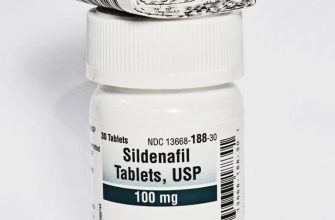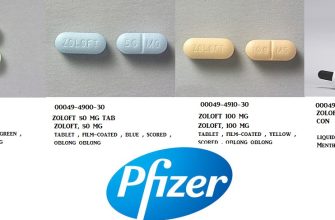Viagra, or sildenafil, primarily treats erectile dysfunction (ED) by increasing blood flow to the penis. This allows for firmer, easier-to-achieve erections during sexual stimulation. It works by inhibiting an enzyme called phosphodiesterase-5 (PDE5), leading to increased levels of cGMP, a molecule crucial for penile erection.
The effect typically lasts for 4-5 hours, although this can vary depending on individual factors such as metabolism and dosage. Remember, Viagra only works with sexual stimulation; it doesn’t create spontaneous erections. Optimal results often require a prescription and careful consideration of potential side effects, which your doctor can discuss with you.
Common side effects can include headaches, flushing, nasal congestion, and visual disturbances. Less frequent, but more serious side effects are possible and should be reported immediately to a healthcare professional. Always follow your doctor’s instructions regarding dosage and frequency of use. Self-medicating with Viagra is dangerous and strongly discouraged.
Important Note: Viagra interacts with certain medications, particularly nitrates. Combining them can cause a dangerous drop in blood pressure. Always inform your doctor of all medications you are currently taking before starting Viagra.
- What Does Viagra Do?
- Viagra’s Effects
- Important Considerations
- How Viagra Works Physiologically
- Blocking PDE5’s Action
- The Role of Nitric Oxide
- Viagra’s Intended Use and Effectiveness
- Potential Side Effects and Risks of Viagra
- Common Side Effects
- Less Common but Serious Side Effects
- Drug Interactions
- Contraindications
- Disclaimer:
What Does Viagra Do?
Viagra, or sildenafil, primarily increases blood flow to the penis. This happens by inhibiting an enzyme called phosphodiesterase-5 (PDE5). PDE5 usually breaks down a chemical called cGMP, which is responsible for relaxing the muscles in the penis, allowing blood to flow in and causing an erection. By blocking PDE5, Viagra allows cGMP to remain active longer, leading to improved blood flow and facilitating erections.
Viagra’s Effects
The effect typically begins within 30 to 60 minutes and lasts for several hours. However, sexual stimulation is still necessary for Viagra to work; it doesn’t cause spontaneous erections. The duration and intensity of the effect vary between individuals, depending on factors such as dosage, overall health, and individual responses to medication.
Important Considerations
Viagra is a prescription medication and should only be used under the guidance of a doctor. It’s crucial to discuss potential side effects and interactions with other medications before use. Common side effects can include headache, flushing, nasal congestion, and visual disturbances. Serious side effects are rare, but seeking immediate medical attention is vital if you experience chest pain, prolonged erection (priapism), or sudden vision loss.
How Viagra Works Physiologically
Viagra, or sildenafil, primarily targets a specific enzyme called phosphodiesterase-5 (PDE5). PDE5 breaks down a crucial molecule called cyclic guanosine monophosphate (cGMP). High levels of cGMP relax the smooth muscles in the blood vessels of the penis, allowing increased blood flow.
Blocking PDE5’s Action
By inhibiting PDE5, Viagra prevents the breakdown of cGMP. This leads to a sustained increase in cGMP concentration, resulting in prolonged relaxation of the penile blood vessels. This increased blood flow is what creates an erection.
The Role of Nitric Oxide
The process starts with the release of nitric oxide (NO) during sexual stimulation. NO triggers a cascade of events leading to cGMP production. Viagra enhances this natural process by ensuring cGMP remains elevated for a longer period, facilitating a stronger and more sustained erection.
Viagra’s Intended Use and Effectiveness
Viagra treats erectile dysfunction (ED), helping men achieve and maintain an erection firm enough for satisfactory sexual intercourse. It works by increasing blood flow to the penis.
How well it works varies. Many men experience significant improvement. Clinical trials show success rates ranging from 60% to 80% for men taking the recommended dose. Factors like age, overall health, and the underlying cause of ED influence results.
Proper dosage is key. Your doctor will determine the appropriate dose based on your individual needs. Starting with a lower dose and gradually increasing it (if needed) under medical supervision is generally recommended.
Side effects are possible. Common ones include headache, flushing, nasal congestion, and visual disturbances. Serious side effects are rare but require immediate medical attention. Discuss any health concerns with your doctor before starting Viagra.
Viagra isn’t a solution for all men with ED. It’s crucial to have a frank discussion with a healthcare professional to determine if it’s the right treatment for you. They can assess your medical history and suggest appropriate options.
Potential Side Effects and Risks of Viagra
Viagra, while effective for many, carries potential side effects. Understanding these risks helps you make informed decisions about your health.
Common Side Effects
- Headache: This is a frequently reported side effect.
- Facial flushing: You might experience redness in your face and neck.
- Nasal congestion: A stuffy or runny nose is possible.
- Dyspepsia (indigestion): Some users report stomach upset.
- Visual disturbances: Temporary changes in vision, such as blurred vision or sensitivity to light, can occur.
These are generally mild and temporary. If they persist or worsen, consult your doctor.
Less Common but Serious Side Effects
While rarer, some individuals experience more serious side effects. Immediate medical attention is necessary if you experience:
- Prolonged erection (priapism): An erection lasting more than four hours requires immediate medical help. This is a medical emergency.
- Sudden vision loss: Report any sudden decrease or loss of vision immediately.
- Sudden hearing loss: A sudden decrease or loss of hearing, sometimes accompanied by ringing in the ears (tinnitus), also requires immediate medical attention.
- Heart attack or stroke: Viagra can increase the risk in individuals with pre-existing heart conditions. Chest pain, shortness of breath, or other symptoms warrant immediate medical help.
Drug Interactions
Viagra interacts with certain medications. Always inform your doctor about all medications, including over-the-counter drugs and supplements, you are taking before starting Viagra. This includes nitrates, which are commonly used to treat angina (chest pain).
Contraindications
- Heart conditions
- Low blood pressure
- Recent stroke or heart attack
- Liver or kidney disease
Individuals with these conditions should not take Viagra without consulting their doctor.
Disclaimer:
This information is for educational purposes only and does not constitute medical advice. Always consult your physician before starting any new medication.






